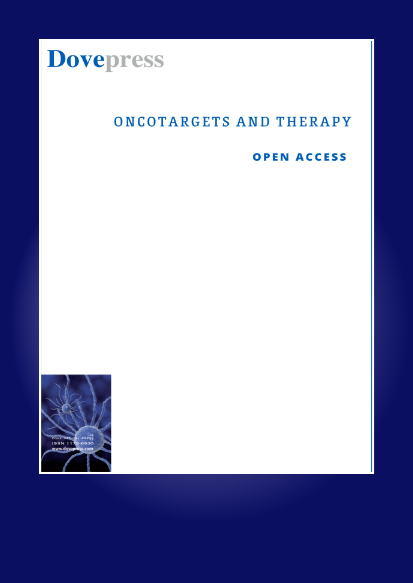双重难治性疾病的下一步:慢性淋巴细胞白血病当前和未来的治疗策略
IF 2.7
4区 医学
Q3 BIOTECHNOLOGY & APPLIED MICROBIOLOGY
引用次数: 0
摘要
摘要:慢性淋巴细胞白血病(CLL)是一种单克隆B细胞淋巴增生性疾病,在西方国家每年的发病率都很高。由于B细胞受体(BCR)信号传导和内在凋亡抵抗在CLL细胞的发育和存活过程中起着关键作用,针对这些通路的治疗方法已被广泛研究,以解决这一不治之症。在过去十年中,多项三期试验证实,共价布鲁顿酪氨酸激酶抑制剂(cBTKis)和选择性 B 细胞淋巴瘤 2(BCL2)抑制剂 venetoclax 的疗效优于化学免疫疗法。这已在治疗无效和复发/难治(RR)的情况下得到证实,其中包括具有高风险分子特征的患者。然而,这些药物并不能治愈疾病,患者在接受 cBTKis 和 BCL2is 治疗后仍会复发,而且这些患者的最佳治疗策略尚未确定。最近,针对 CLL 开发出了几种具有不同机制的新型药物,这些药物对既往接受过 cBTKis 和 BCL2i 治疗的患者具有疗效。特别是,新型 BCR 信号靶向药物在 RR-CLL 早期临床试验中显示出了良好的疗效。此外,双特异性抗体和嵌合抗原受体T细胞等癌症免疫疗法也在接受过大量预处理的RR-CLL患者中显示出抗肿瘤活性。基于对耐药机制的了解,使用这些新型药物的个性化方法和联合策略有可能克服临床难题,即已经使用过cBTKi和venetoclax的患者下一步该怎么办:CLL、BTK抑制剂、BCL2抑制剂、双特异性抗体、CAR-T细胞疗法本文章由计算机程序翻译,如有差异,请以英文原文为准。
Taking the Next Step in Double Refractory Disease: Current and Future Treatment Strategies for Chronic Lymphocytic Leukemia
Abstract: Chronic lymphocytic leukemia (CLL) is a monoclonal B-cell lymphoproliferative disease with a high annual incidence in Western countries. As B-cell receptor (BCR) signaling and intrinsic apoptotic resistance play critical roles in the development and survival of CLL cells, therapeutic approaches targeting these pathways have been extensively investigated to tackle this incurable disease. Over the last decade, several Phase 3 trials have confirmed the superior efficacy of covalent Bruton tyrosine kinase inhibitors (cBTKis) and venetoclax, a selective B-cell lymphoma 2 (BCL2) inhibitor, over chemoimmunotherapy. This has been demonstrated in both the treatment-naïve and relapsed/refractory (RR) settings and includes patients with high-risk molecular features. However, these drugs are not curative, with patients continuing to relapse after treatment with both cBTKis and BCL2is, and the optimal treatment strategy for these patients has not been defined. Several novel agents with distinct mechanisms have recently been developed for CLL which have demonstrated efficacy in patients who have previously received cBTKis and BCL2i. In particular, novel BCR-signaling targeting agents have shown promising efficacy in early-phase clinical trials for RR-CLL. Furthermore, cancer immunotherapies such as bispecific antibodies and chimeric antigen receptor T-cells have also shown anti-tumor activity in patients with heavily pretreated RR-CLL. Personalised approaches with these novel agents and combination strategies based on the understanding of resistance mechanisms have the potential to overcome the clinical challenge of what to do next for a patient who has already had a cBTKi and venetoclax.
Keywords: CLL, BTK inhibitor, BCL2 inhibitor, bispecific antibody, CAR-T cell therapy
Keywords: CLL, BTK inhibitor, BCL2 inhibitor, bispecific antibody, CAR-T cell therapy
求助全文
通过发布文献求助,成功后即可免费获取论文全文。
去求助
来源期刊

OncoTargets and therapy
BIOTECHNOLOGY & APPLIED MICROBIOLOGY-ONCOLOGY
CiteScore
9.70
自引率
0.00%
发文量
221
审稿时长
1 months
期刊介绍:
OncoTargets and Therapy is an international, peer-reviewed journal focusing on molecular aspects of cancer research, that is, the molecular diagnosis of and targeted molecular or precision therapy for all types of cancer.
The journal is characterized by the rapid reporting of high-quality original research, basic science, reviews and evaluations, expert opinion and commentary that shed novel insight on a cancer or cancer subtype.
Specific topics covered by the journal include:
-Novel therapeutic targets and innovative agents
-Novel therapeutic regimens for improved benefit and/or decreased side effects
-Early stage clinical trials
Further considerations when submitting to OncoTargets and Therapy:
-Studies containing in vivo animal model data will be considered favorably.
-Tissue microarray analyses will not be considered except in cases where they are supported by comprehensive biological studies involving multiple cell lines.
-Biomarker association studies will be considered only when validated by comprehensive in vitro data and analysis of human tissue samples.
-Studies utilizing publicly available data (e.g. GWAS/TCGA/GEO etc.) should add to the body of knowledge about a specific disease or relevant phenotype and must be validated using the authors’ own data through replication in an independent sample set and functional follow-up.
-Bioinformatics studies must be validated using the authors’ own data through replication in an independent sample set and functional follow-up.
-Single nucleotide polymorphism (SNP) studies will not be considered.
 求助内容:
求助内容: 应助结果提醒方式:
应助结果提醒方式:


